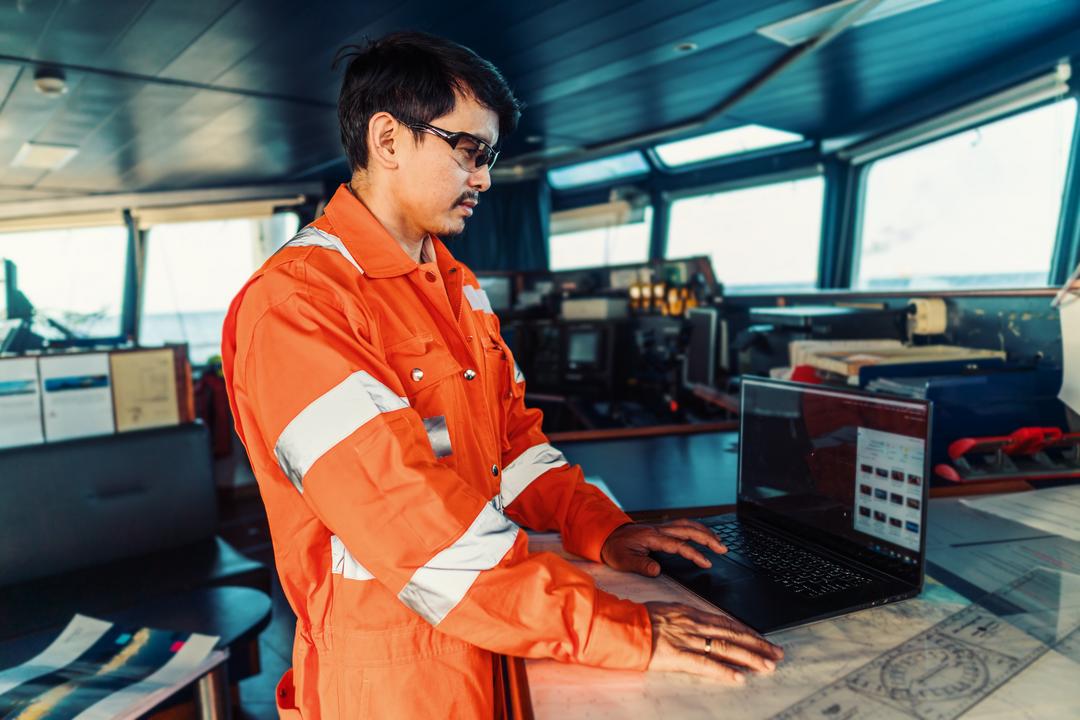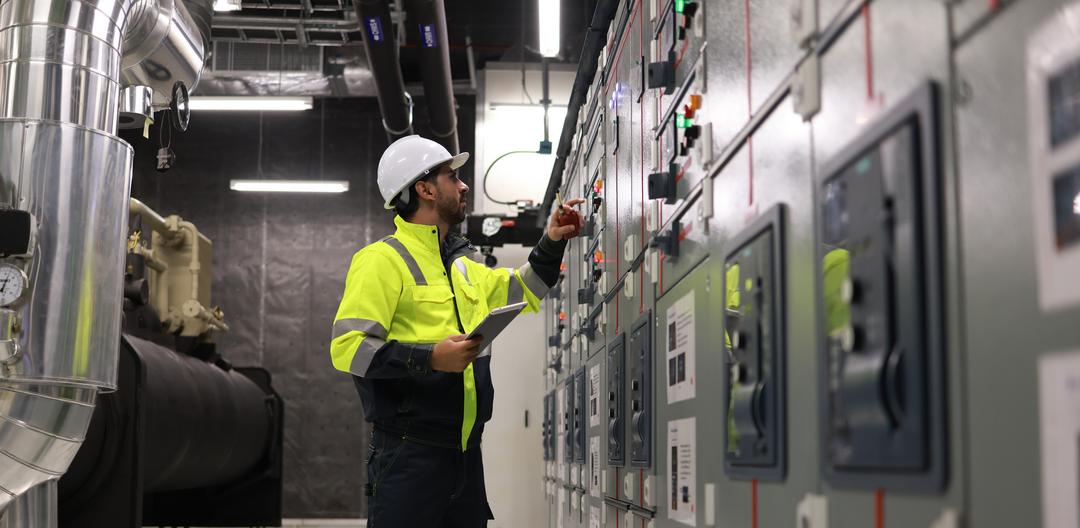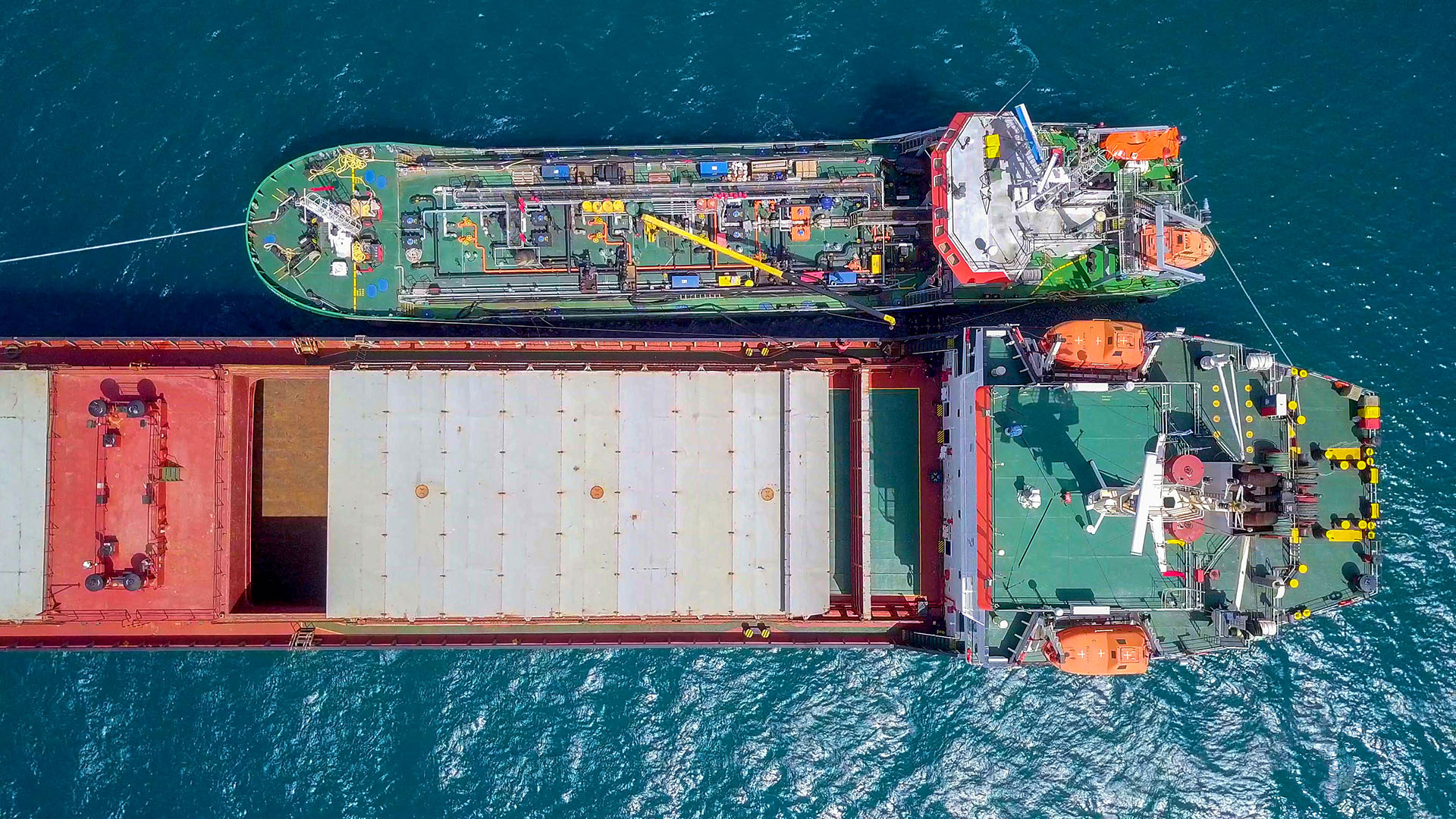The maritime industry has witnessed a transformative shift towards digitalization. Ships have become more interconnected than ever, acting as floating data centers.
As vessels become increasingly reliant on integrated systems, the assurance of cybersecurity has become paramount. For vessel operators, ensuring the safety and security of onboard systems is not merely a convenience but a necessity.
At Danelec, we understand this crucial need. We are thrilled to announce that our Vessel Remote Servers (VRS) have received the IEC 61162-460 Type Approval Certificate from DNV. But what does this mean for the maritime industry, and why is this certification so significant?
Escalating Cyber Threats and Their Economic Impact
Recent findings from a report by Thetius, in collaboration with CyberOwl and HFW, shed light on the evolving cyber threat landscape within the maritime industry.
While the number of cyberattacks seems to have stabilized, their financial implications are skyrocketing. Since early 2022, the cost incurred by organizations due to these cyber incidents has surged by nearly 200%. Hackers are no longer just opportunistic; they are strategic and audacious. Their demands for ransoms have not only increased, but the frequency of such pay-outs has seen a staggering rise of over 350%. Today, the average ransom amount stands at a hefty $3.2 million. Such numbers are a stark reminder of the immense financial burden cyber threats can impose on maritime entities.
What is the IEC 61162-460:2018 Standard?
The IEC 61162-460:2018 standard is an enhancement to the IEC 61162-450. It has been designed for scenarios where heightened safety and security standards are essential, especially when systems are exposed to external threats or when there's a need to bolster network integrity.
This standard doesn’t introduce new application-level protocol requirements beyond what's defined in IEC 61162-450. Instead, it amplifies the existing safety and security measures, ensuring that equipment and networks can withstand and counteract potential cyber threats.
Key Features of the Second Edition:
- Enhanced Network Monitoring: The introduction of IGMP snooping for 460-Switches and 460-Forwarders improves efficiency and reduces unnecessary traffic.
- Improved Isolation: Connection between secure and non-secure areas mandates a 460-Forwarder, bolstering the isolation and thereby reducing vulnerabilities.
- Mandated SFI collision detection as part of the Network Monitoring for faster troubleshooting.
- Streamlined Reporting: The 460-Gateway and 460-Wireless gateway are no longer burdened with reporting to network monitoring, and optimizing system performance.
- Standardized Alert Identifiers: Having a uniform system for alerts streamlines issue detection and resolution.

VRS 002 G2
The Significance of the Type Approval for our VRS
Given that our VRS is integrated with critical onboard instruments like the Voyage Data Recorder (VDR), its cybersecurity isn't just about protecting data—it's about ensuring the safety and security of the entire vessel.
With hackers becoming increasingly sophisticated, it is essential that maritime systems are robust and resilient. This certification underscores our unwavering commitment to maritime safety and security. It serves as a testament that our VRS is equipped to mitigate risks, resist hacking, and minimize tampering.
Proving Reliability in the Maritime Industry
In an industry as dynamic and critical as maritime, trust is paramount. In light of the Thetius findings, the importance of our VRS receiving the IEC 61162-460 Type Approval from DNV becomes even more pronounced. We not only elevate the standard of our products but also instill confidence in our customers.
This type approval is more than a validation of our VRS’s capabilities, it symbolizes the future of maritime safety and security. As we sail into this interconnected era, Danelec remains dedicated to pioneering solutions that prioritize both vessel and voyage integrity.
Steering Toward Higher Maritime Standards
Achieving the IEC 61162-460 approval is a significant milestone for Danelec and sets us firmly on the path toward obtaining the IACS UR E27 approval. This certification will become a mandate for equipment on new ships starting from July 1st, 2024. Our unwavering commitment to excellence and safety ensures that we remain at the forefront of industry standards, always aspiring to deliver the best in maritime technology solutions. With eyes set on the future, we are prepared to navigate the evolving needs and requirements of maritime safety and cybersecurity.




